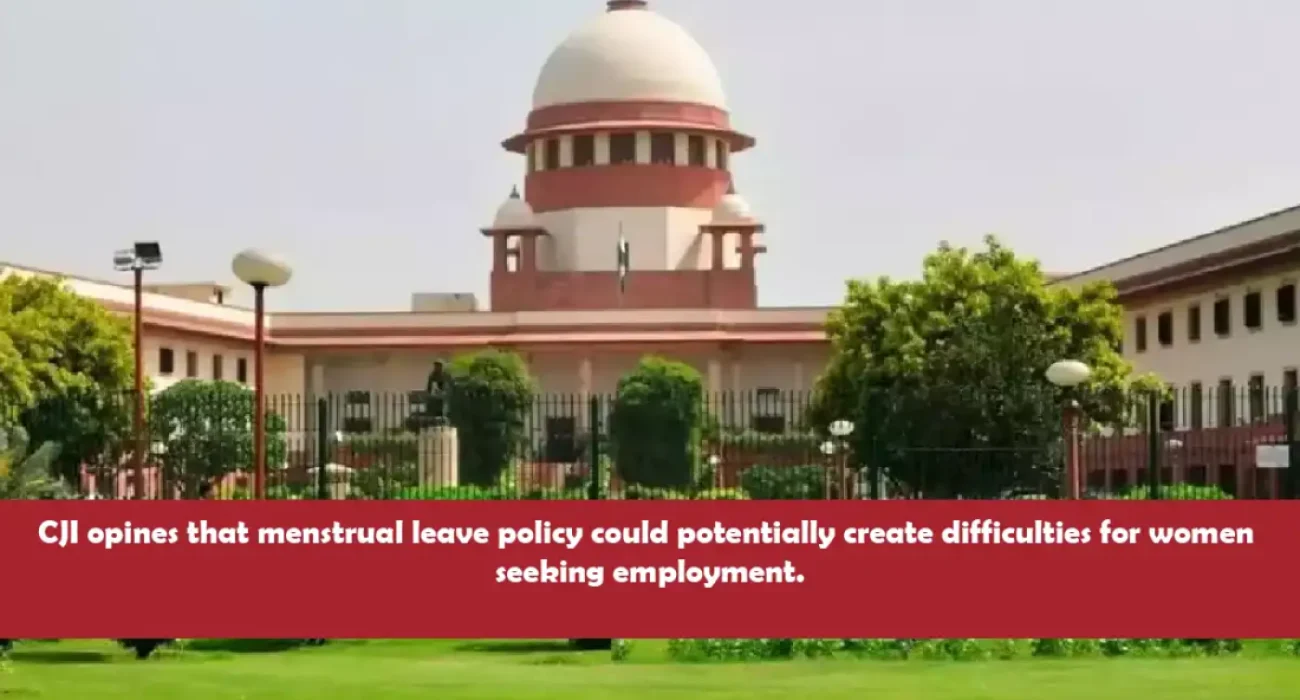

Table of Contents
ToggleOn July 8, the Apex Court asked the Union government to consult all relevant stakeholders on the issue of implementing a menstrual leave policy for working women. The court expressed concerns that such a policy might not be well-received by employers and could potentially create difficulties for women seeking employment. The bench, led by Chief Justice DY Chandrachud and including Justices JB Pardiwala and Manoj Misra, was hearing a petition advocating for menstrual leave for female students and working women across the country.
The petitioner argued that menstrual leave policies have already been adopted by several private employers in India and are in place in various countries, including Japan, Indonesia, the United Kingdom, Wales, Spain, Zambia, China, Taiwan, and South Korea. The petitioner highlighted the positive impact such policies could have on women’s participation in the workforce. Conversely, the court and the Respondents were concerned that mandating menstrual leave might discourage employers from hiring women, potentially harming women’s employment opportunities.
The CJI acknowledged the dual perspectives: while a menstrual leave policy could support women in the workforce, it might also lead employers to avoid hiring women to maintain productivity. The court emphasized that the issue fell within the policy domain and needed careful consideration, particularly at the governmental level, as it involved balancing the protection of women’s rights with potential disadvantages.
The court granted the petitioner permission to approach the Secretary of the Union Ministry of Women and Child Development once again, with a copy to learned Additional Solicitor General Aishwarya Bhati. The court requested the Secretary to consider the matter at a policy level, consulting with all stakeholders at both Union and State levels to determine the feasibility of formulating a model policy. The court clarified that this order did not prevent State governments from making independent decisions for the welfare of their employees.
IAW resources
Browse our help directory